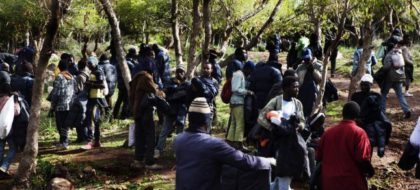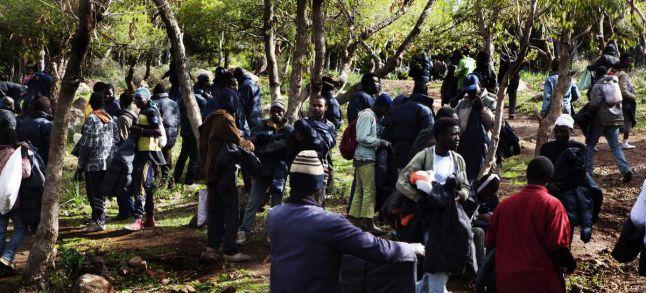 Migrants are increasingly shunning the Libyan routes for security reasons in favor of the closer and less risky Moroccan-Spanish land and sea borders.
Migrants are increasingly shunning the Libyan routes for security reasons in favor of the closer and less risky Moroccan-Spanish land and sea borders.
Some 400 migrants from Sub-Saharan Africa reached Spain on Thursday after storming a double barrier between Morocco and the Spain-occupied enclave of Ceuta, with some attacking security forces with quicklime, police told The Daily Telegraph.
On July 25, Spanish authorities rescued 392 illegal migrants that embarked on board of dinghies from Morocco. A day earlier, 334 illegal migrants were rescued at sea.
The rise in migrant numbers waiting in Morocco for a chance to storm the borders of the Spain-occupied enclaves of Ceuta and Melilla or take the perilous sea journey to Spain is raising fears of a new trend in illegal migration.
Attempts at storming the borders of the two exclaves in Morocco, Ceuta and Melilla, and embarkations on board dinghies are making the headlines in Europe with the International Organization for Migration estimating that over 20,000 irregular migrants reached Spain via Morocco in 2018.
The closure of the Balkan route after the EU-Turkey agreement, the deteriorating security conditions, and the crackdown on migration in Libya, push would-be migrants to see in heavily patrolled Moroccan coasts and land borders with Ceuta and Melilla an alternative.
To address the surge of illegal migration attempts, the EU suggested outsourcing the management of migration and asylum to North Africa through the setting up of reception centers.
The proposal was met with utter rejection from Morocco, Algeria, Tunisia and Libya.
Morocco responded to the migration problem by launching a solidarity-based policy granting legal stay to more than 24,000 migrants and is currently processing more than 28,000 residency applications mostly submitted by Sub-Saharan migrants.
Algeria, on the other hand, opted for the use of force rounding up migrants indiscriminately and abandoning them in the desert on the borders with Niger, a move that put Algeria under the fire of international rights NGOs.


